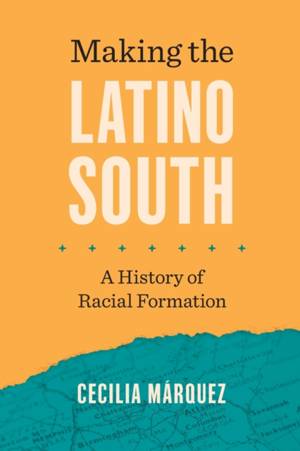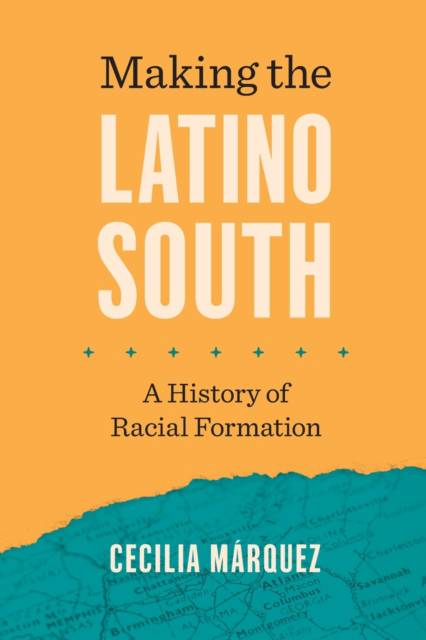
- Afhalen na 1 uur in een winkel met voorraad
- Gratis thuislevering in België vanaf € 30
- Ruim aanbod met 7 miljoen producten
- Afhalen na 1 uur in een winkel met voorraad
- Gratis thuislevering in België vanaf € 30
- Ruim aanbod met 7 miljoen producten
Zoeken
€ 42,95
+ 85 punten
Uitvoering
Omschrijving
In the 1940s South, it seemed that non-Black Latino people were on the road to whiteness. In fact, in many places throughout the region governed by Jim Crow, they were able to attend white schools, live in white neighborhoods, and marry white southerners. However, by the early 2000s, Latino people in the South were routinely cast as "illegal aliens" and targeted by some of the harshest anti-immigrant legislation in the country. This book helps explain how race evolved so dramatically for this population over the course of the second half of the twentieth century.
Cecilia Marquez guides readers through time and place from Washington, DC, to the deep South, tracing how non-Black Latino people moved through the region's evolving racial landscape. In considering Latino presence in the South's schools, its workplaces, its tourist destinations, and more, Marquez tells a challenging story of race-making that defies easy narratives of progressive change and promises to reshape the broader American histories of Jim Crow, the civil rights movement, immigration, work, and culture.
Cecilia Marquez guides readers through time and place from Washington, DC, to the deep South, tracing how non-Black Latino people moved through the region's evolving racial landscape. In considering Latino presence in the South's schools, its workplaces, its tourist destinations, and more, Marquez tells a challenging story of race-making that defies easy narratives of progressive change and promises to reshape the broader American histories of Jim Crow, the civil rights movement, immigration, work, and culture.
Specificaties
Betrokkenen
- Auteur(s):
- Uitgeverij:
Inhoud
- Aantal bladzijden:
- 284
- Taal:
- Engels
- Reeks:
Eigenschappen
- Productcode (EAN):
- 9781469676050
- Verschijningsdatum:
- 12/09/2023
- Uitvoering:
- Paperback
- Formaat:
- Trade paperback (VS)
- Afmetingen:
- 156 mm x 234 mm
- Gewicht:
- 439 g

Alleen bij Standaard Boekhandel
+ 85 punten op je klantenkaart van Standaard Boekhandel
Beoordelingen
We publiceren alleen reviews die voldoen aan de voorwaarden voor reviews. Bekijk onze voorwaarden voor reviews.











